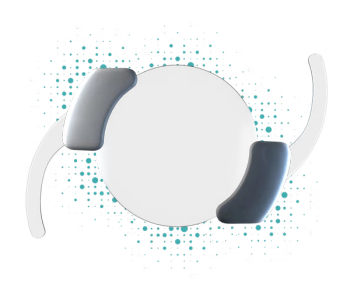
Solving optical complaints
So many dispensaries struggle with common problems that hamper both efficiency and customer or patient relationships. From salespeople who don't truly believe in the product, to miscommunication, to costly product replacements, these challenges can all be handled with simple pivoting both in mindset and adoption of office-wide systems.
Las Vegas-At the end of the day, a dispensary is a sales room, and the sheer number of lenses and frames available for purchase means many patients rely on the optician’s recommendations because patients are too overwhelmed with options. As such, dispensaries have a big role to play, not just in helping to balance the books but also in continuing patient care and service.
So many dispensaries struggle with common problems that hamper both efficiency and customer or patient relationships. From salespeople who don't truly believe in the product, to miscommunication, to costly product replacements, these challenges can all be handled with simple pivoting both in mindset and adoption of office-wide systems.
To help, Joy Gibb, ABOC, in Bountiful, UT, offered some tips at a recent lecture at Vision Expo West 2015.
Related:
The internal "why"
Being effective in sales requires a clear understanding of why the products being sold are what are best for the customer. If a dispenser doesn't have her “why" figured out, or if it's simply because of a need for a paycheck or job security, then she probably won't be comfortable presenting patients with high-cost invoices because they won't believe those figures justify the product. Patients see this, and if the expert doesn't believe the price is worth it, why should they?
"Why do you believe patients should have that product?" Gibb asks. "What would you want your grandma or mom to wear? Do they deserve it? How many pairs do you have?"
The lens or frame choices should be based on what's best for the customer-when that's the case, there's no reason to doubt the pricing.
Furthermore, it help to also bundle pricing. When each part of the sale is listed individually, it gives customers the sense of add-ons. However, by offering one price, it allows for a different kind of discussion based on "good, better, and best" options. For those who are uncomfortable with the price, staff can then break the price down and mention that this is based on the best options for what the customer wanted. If the customer wants to pay less, he can be told the "good" and "better" options, and shown how much they'll save but at the cost of what features. Often, when clients see that they'll be saving only $50 to $100 for giving up features that excited them, they'll pick the best options.
By framing the discussion this way (pun intended), it helps the dispenser understand the value of the product being sold and why it truly is what's best for the customer.
Says Gibbs: "Money is a derivative of your why and it's something that will come because of your why, but it’s not going to be your why."
Be the professional
There's nothing worse than having patients come back after receiving their glasses because there's something wrong with them. Sometimes, it's simply a matter of adjusting them, but at other times, it requires a complete replacement.
To start, it's vital that when those first measurements are taken, they're checked and checked again. In the event that measurements must be redone, the dispensary should have a system in place that requires using a form to check off various questions. This way, if the problem continues, there's a record of what's been asked and what solutions have been attempted. If a patient gets asked the same questions over and over again with each visit, it kills credibility and patients then think they need to be rechecked by the doctor.
More from VEW:
"If you can retain that credibility and that control and [patients] understand that yes, indeed, you have a professional working knowledge of what needs to happen to make them see well, they'll totally trust you," Gibb says. "And then it's not just go see Dr. So-and-So, it's go see So-and-so in the dispensary; she's amazing at what she does."
Sherlock Holmes should have nothing on you
Often, patients don't really know what they want, but they do know they have a problem. Whether the patient is unhappy with the frames, lenses, or still has problems with vision, the client expects the professional to simply have the answer. The problem becomes bigger than it really is if staff can't figure it out on their behalf.
"You have to be the detective and ask those questions," Gibb says. "Are you having a hard time seeing far away, are you having a hard time at near? When do you seem to have the most problems? Because a lot of people will just say, 'I can't see.' Well, what do you mean you just can't see?"
Asking pointed questions, just as what types of medication the patient is taking, or if there has been a recent illness, or even when the patient uses the glasses, can reveal solutions.
Gibb recalls one patient who came in wanting a stronger bifocal, but the doctor didn't want to increase the prescription because it would have been too strong. After some more questions, they found out the patient used his glasses when painting small figurines. The answer was as simple as writing a prescription for a second pair of stronger bifocals for the patient's hobby.
Boiling it down
Ultimately, it comes down to setting up systems ahead of time and training everyone-including the doctors-on best practices. By following some of these simple steps, a dispensary can get rid of those pesky, everyday problems, all the while creating a better experience and increasing the likelihood of creating lifetime customers.
Newsletter
Want more insights like this? Subscribe to Optometry Times and get clinical pearls and practice tips delivered straight to your inbox.




























